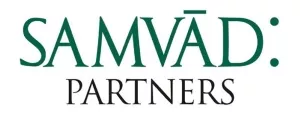- in United States
- within Employment and HR and Insurance topic(s)
- with readers working within the Retail & Leisure and Law Firm industries
Does a resolution plan have to provide for the payment of provident fund, pension fund and gratuity dues of employees in their entirety? The Supreme Court recently upheld the ruling of the National Company Law Tribunal (“NCLAT”) on this issue1 , thereby clarifying some nuances regarding the treatment of statutory employment dues under a resolution plan. This update considers the basis for the NCLAT's judgment that directed the successful resolution applicant to discharge the corporate debtor's liability towards provident fund and gratuity dues in full up to the insolvency commencement date.
Background:
In Jet Aircraft Maintenance Engineers' Welfare Association vs Ashish Chhawchharia RP of Jet Airways (India) Ltd.2 , various trade unions of employees and workmen challenged the order of the National Company Law Tribunal (“NCLT”) approving the resolution plan for Jet Airways (India) Ltd. (“Jet Airways”) submitted by the Jalan Fritsch consortium. The employees and workmen had primarily two challenges to the resolution plan approved by the NCLT. First, as per Section 36(4)(a)(iii) of the Insolvency and Bankruptcy Code, 2016 (“IBC”), provident fund, gratuity fund and pension fund dues are not part of the liquidation estate and, accordingly, had to be paid in full pursuant to a resolution plan as they are not the assets of the corporate debtor. As the resolution plan did not provide for payment of these statutory dues in full, it violated Section 30(2)(e) of the IBC that states that a resolution plan may not contravene any law currently in force.
Second, the resolution professional had incorrectly failed to include amounts due to workmen and employees after the insolvency commencement date as part of the corporate insolvency resolution process (“CIRP”) costs. Counsel for the employees and workmen argued that the employees and workmen had been on the rolls of the corporate debtor after the insolvency commencement date and the fact that the resolution professional had not given them any duties could not be a reason to deny them their dues. They also contended that the demerger provided for in the resolution plan, that would result in the transfer of a majority of employees and workmen to Airjet Ground Services Limited (“AGSL”), violated the Industrial Disputes Act, 1947 and had been carried out to deny retrenchment compensation to the workmen of the corporate debtor.
In response to these claims, the resolution professional as well as the successful resolution applicant pointed out that the corporate debtor had failed to maintain a gratuity fund as required under the Payment of Gratuity Act, 1972, and had stopped making contributions to the employee provident fund organisation (“EPFO”) in February 2019. They contended that the requirement under the IBC to exclude provident funds, gratuity funds and pension funds from the liquidation estate required the existence of these funds in the first place. As these funds had not been maintained by the corporate debtor, there was no question of these statutory dues being exclusively available for payment to workmen and employees. As a consequence, the resolution plan correctly provided for the payment of workmen and employee dues in accordance with the waterfall provided in Section 53(2) of the IBC.
On the second contention, the resolution professional stated that the corporate debtor was not being run as a going concern during the CIRP and, accordingly, only 50 employees had been retained as part of the corporate debtor's asset preservation team. The remaining employees and workmen could not claim any dues post the insolvency commencement date as they had not worked during this period. The resolution professional and successful resolution applicant further pointed out that the demerger proposed in the resolution plan was within the commercial wisdom of the committee of creditors and was, therefore, non-justiciable.
NCLAT's Holding:
Provident Fund and Gratuity Fund Dues: Considering the language of sub-clause (4) (a)(iii) of Section 36 as well as committee reports, the tribunal pointed out that the clear legislative intent was to exclude these statutory payments from the liquidation estate and ensure that employees and workmen are the sole beneficiaries of these funds. These statutory payments are primarily accrued social safety nets and cannot be considered as part of the liquidation estate or used for recoveries for other creditors. The NCLAT also cited several judgments, including Tourism Finance Corporation of India Ltd. vs. Rainbow Papers Ltd. & Ors.3 , where the tribunal directed the successful resolution applicant to release the “full provident fund and interest thereof as per the provisions of Employees Provident Funds and Miscellaneous Provision Act, 1952” as these were not assets of the corporate debtor.
Further, the NCLAT did not accept the contentions of the resolution professional and successful resolution applicant that the provident funds and gratuity funds had not been maintained by the corporate debtor and, accordingly, there were no such assets available to be excluded from the estate of the corporate debtor. The NCLAT stated that the corporate debtor was statutorily obligated to deposit provident funds and maintain a gratuity fund and, as it had failed to do so (after February 2019 in the case of provident funds), the successful resolution applicant was liable to satisfy the provident fund and gratuity fund obligations of the corporate debtor (including interest and any damages) up to the insolvency commencement date, which was June 20, 2019.
Claims post Insolvency Commencement Date and Violations of the Industrial Disputes Act: The NCLAT rejected the claim of employees and workmen that their dues post the CIRP commencement date should be treated as CIRP costs, relying on the judgment of the Supreme Court in Sunil Kumar Jain & Ors. vs. Sundaresh Bhatt & Ors.4 In Sunil Kumar Jain, the Supreme Court had dismissed the appeal filed by workmen and employees, stating that their dues could be included as part of CIRP costs only if the corporate debtor was being run as a going concern and workmen and employees had actually worked during the CIRP. In this case too, the NCLAT pointed out that the airline had ceased operations and, other than the 50 employees who had been retained as part of the asset preservation team, none of the employees and workmen were entitled to dues post the insolvency commencement date.
Similarly, the NCLAT also rejected the claim that the demerger of certain employees and workmen into AGSL was a violation of the Industrial Disputes Act, on the basis that, as the workmen had not been terminated, retrenchment compensation was not applicable. Further, the NCLAT pointed out that the plan of demerger had to be considered in the context of the larger plan to revive the corporate debtor and was well within the commercial wisdom of the CoC.
Ultimately, the NCLAT directed the successful resolution applicant to pay in full provident fund dues until the insolvency commencement date, after adjusting for the amount already provided for in the resolution plan. Similarly, the workmen whose gratuity amount became due before the insolvency commencement date were also entitled to receive the same after adjusting for the portion of gratuity that was already provided for in the plan. The NCLAT however stated that those employees who were transferred pursuant to the demerger, would not be treated to have been terminated, and therefore would not be entitled for any gratuity or leave encashment.
Analysis:
While Section 36(4)(a)(iii) is clear that provident funds, pension funds and gratuity funds do not constitute part of the liquidation estate, the NCLAT's judgment in the Jet Airways case further clarifies certain nuances on this issue. First, while Section 36(4) relates to the liquidation estate, the NCLAT's judgment makes clear that the same principle applies to the resolution process as well. Second, the NCLAT went a step further than the explicit language of Section 36(4)(a)(iii) in holding that the underlying principle, that statutory employment dues should be paid to employees and workmen in their entirety, applies even if the corporate debtor had failed to make these contributions. In such circumstances, the obligation would lie with the successful resolution applicant to ensure that workmen and employees receive the statutory dues owed to them in their entirety.
The NCLAT's judgment is beneficial to employees and workmen who can now be assured of receiving their statutory dues in full without any haircut. However, it is worth considering if the successful resolution applicant should be liable to also pay the interest and damages on the provident fund dues to the EPFO as the NCLAT had directed, particularly as these amounts do not go to the workmen or employees. While provisions on damages and interest in employment legislation are intended to ensure that employers make timely payments of these dues, penalizing the successful resolution applicant for defaults by the corporate debtor is a departure from the premise that the successful resolution applicant would acquire the corporate debtor on a clean slate.
Going forward, this judgment has significant implications for resolution plans and the issues prospective resolution applicants would need to consider when submitting bids. It would be critical for prospective resolution applicants to diligence the extent to which the erstwhile management of the corporate debtor has complied with its statutory obligations towards provident fund and gratuity dues and take into account the successful resolution applicant's obligation to make good any shortfall.
Footnotes
1 Jalan Fritsch Consortium v Regional Provident Fund Commissioner and Another [Civil Appeal Number 407 of 2023]
2 Company Appeal (AT) (Insolvency) No. 752 of 2021.
3 Company Appeal (AT) (Ins.) No. 354 of 2019 & Other Appeals.
4 (2022) SCC OnLine SC 467
The content of this article is intended to provide a general guide to the subject matter. Specialist advice should be sought about your specific circumstances.




